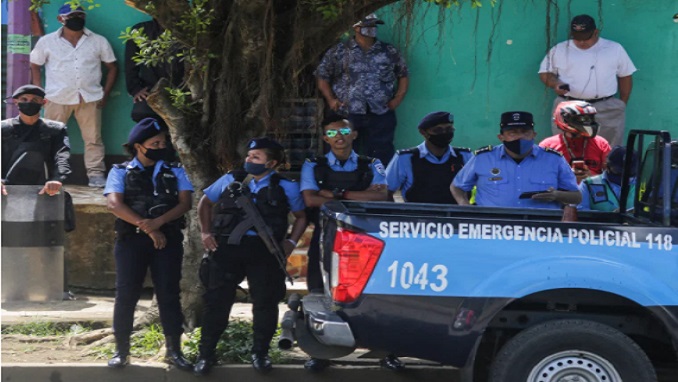The Committee to Protect Journalists today joined three other human rights organizations in a joint statement commemorating Nicaragua’s national Day of the Journalist and calling on authorities to end the widespread harassment of members of the press, and ensure media outlets and press freedom organizations can work safely, Havana Times reports.
In the statement, CPJ joined three regional free expression and human rights groups—IFEX-ALC, AMARC-ALC, and The Institute of Race, Equality, and Human Rights—in a condemnation of the years-long crackdown on the press in Nicaragua.
“News outlets have been forced to close and individual journalists threatened, harassed, sued, surveilled and jailed, as dozens more fled the country for their own safety” since the government began cracking down on protests in 2018, according to the CPJ statement.
Since officials and security forces responded brutally to widespread protests in April 2018, as CPJ documented at the time, news outlets have been forced to close and individual journalists have been threatened, harassed, sued, surveilled, jailed, and forced into exile, the organizations write.
The statement also expresses concern about two pieces of legislation passed late last year, including one that requires individuals and organizations receiving funding from outside Nicaragua to register as “foreign agents,” and which expanded the government’s capacity to control and silence the press.
Ahead of national elections scheduled for November 2021, the statement calls on Nicaraguan officials to uphold international obligations to ensure press freedom and access to information, stop using restrictive laws to censor the press, and allow reporters and press freedom organizations to work freely.
Ortega’s government has seized media properties and passed laws mandating prison sentences for those who use online platforms to spread information the government considers false or alarming.
In December, two media outlets and several non-governmental groups said their offices were confiscated by the government of President Daniel Ortega, with placards posted at the properties reading “Property of the Health Ministry.” The signs indicated the properties would be used as maternal welfare or drug treatment centers. The offices in most cases were closed by the government following the 2018 protests against Ortega and have been occupied by police since then.
The CPJ wrote that on February 23, Nicaragua’s Health Ministry “opened a maternal health center in the Managua offices that previously housed the news website Confidencial and the television program Esta Semana. … The Health Ministry announced it also intends to use the offices where news channel 100% Noticias channel previously operated.”
In early February, a former Nicaraguan president’s press freedom organization said it was suspending its activities due to a controversial law that requires people and organizations receiving funds from outside Nicaragua to register as “foreign agents” with the Interior Ministry. Groups must provide detailed reports of their income and expenditures to the government or face hefty fines, jail time and seizure of their property.
“We call on Nicaraguan officials to uphold their international obligations to protect these fundamental rights, stop using restrictive laws and the state security apparatus to intimidate and censor the press, and allow reporters and press freedom organizations to resume their activities in the country,” according to the press groups’ statement.
